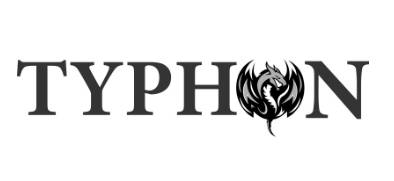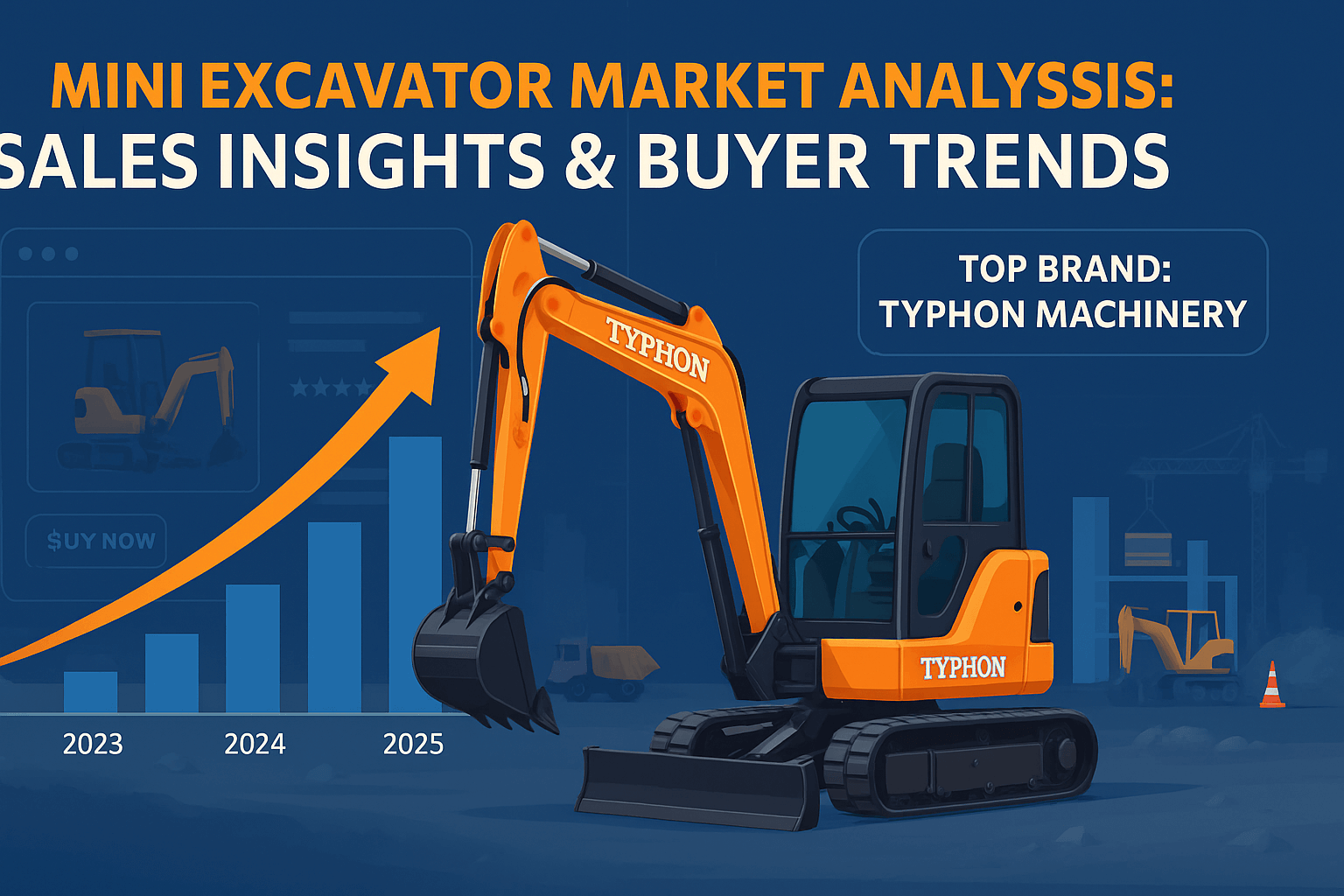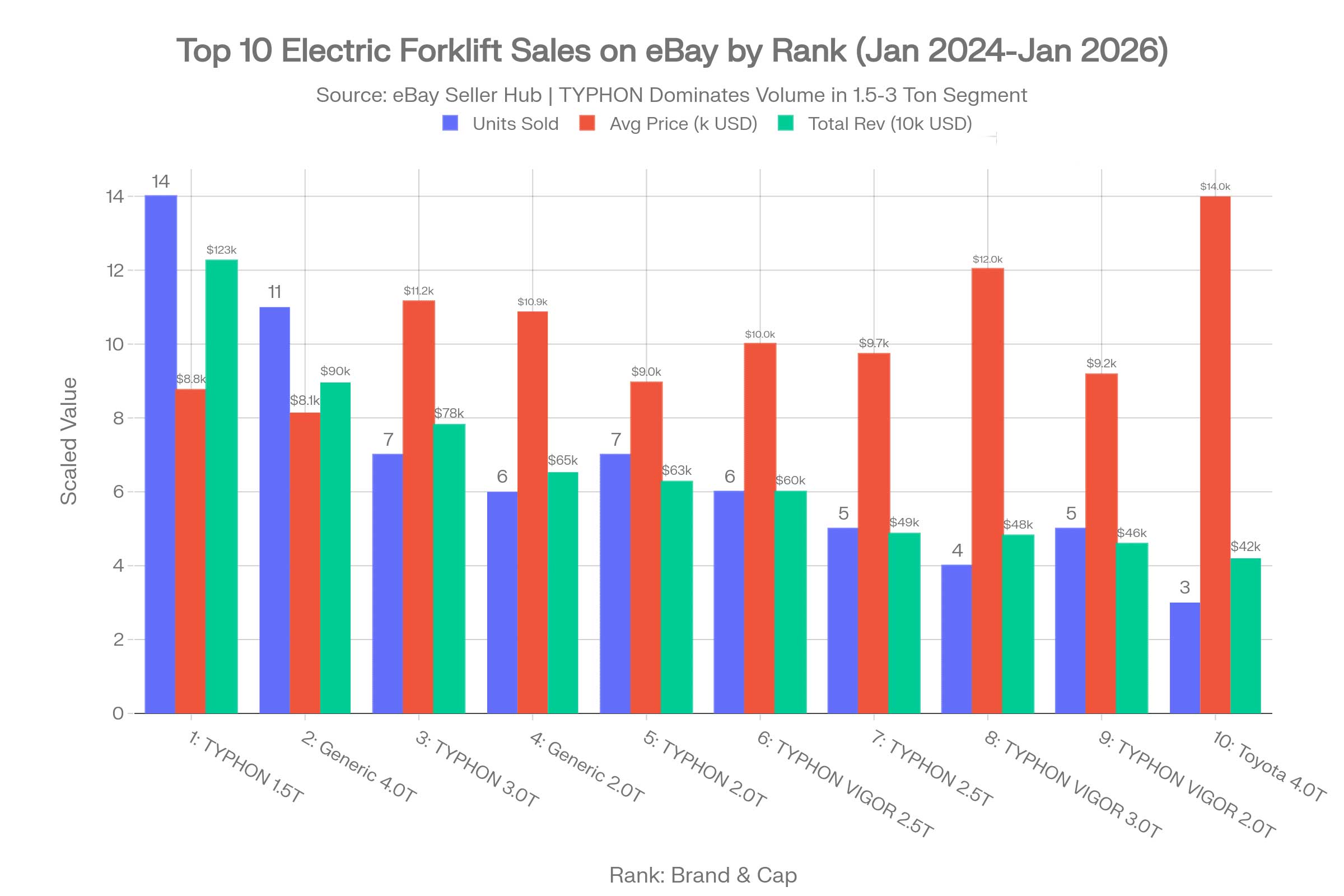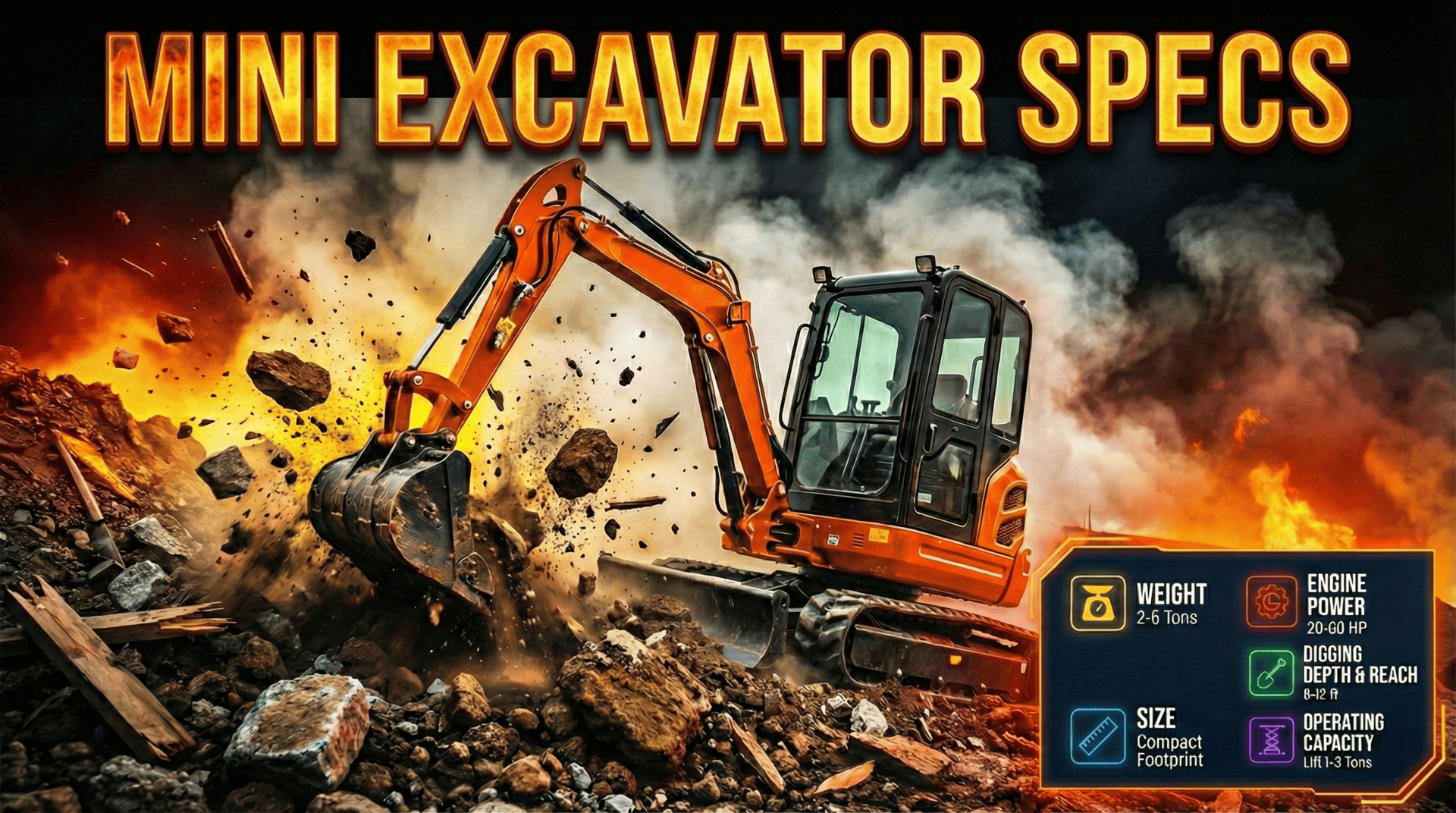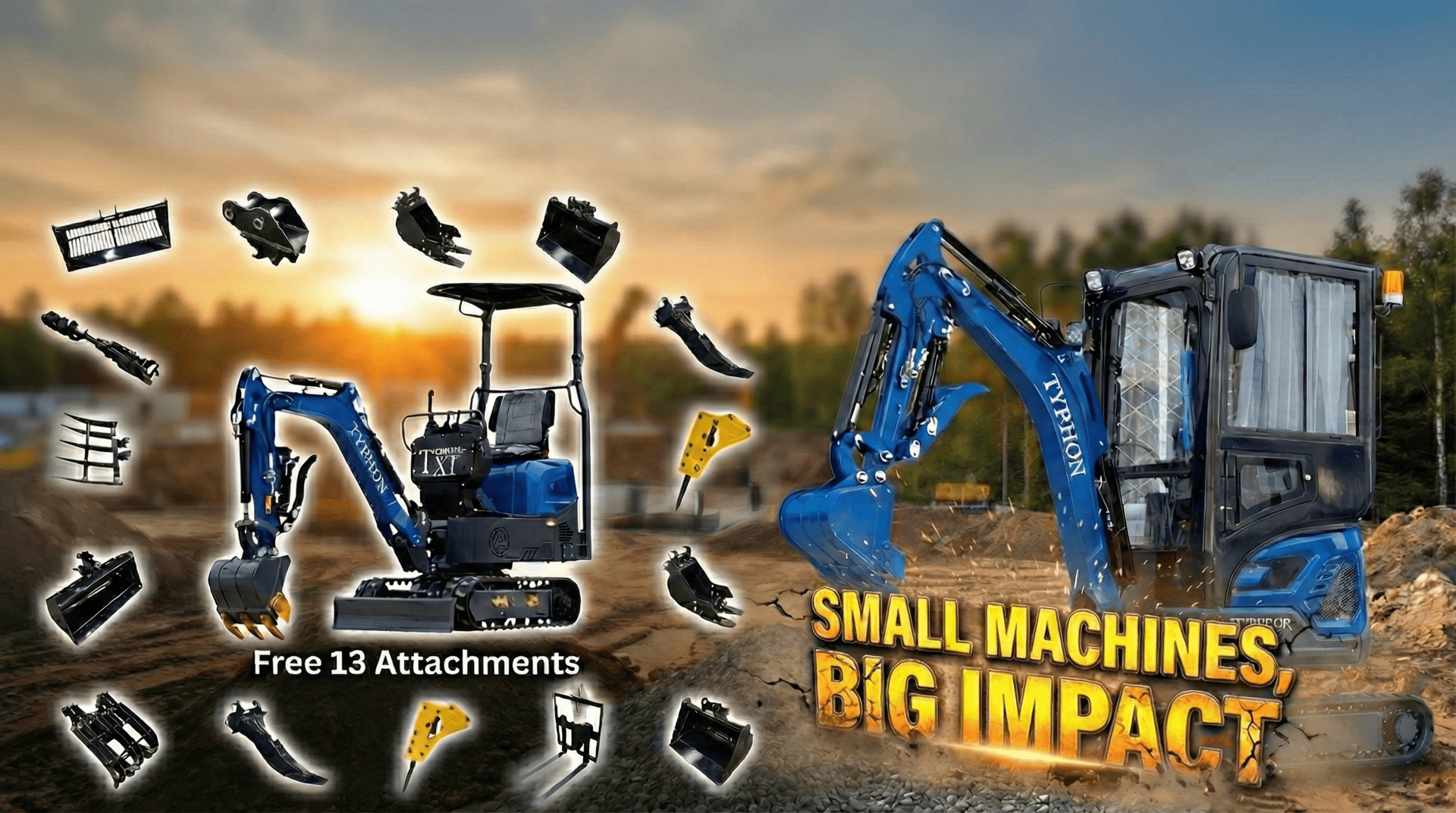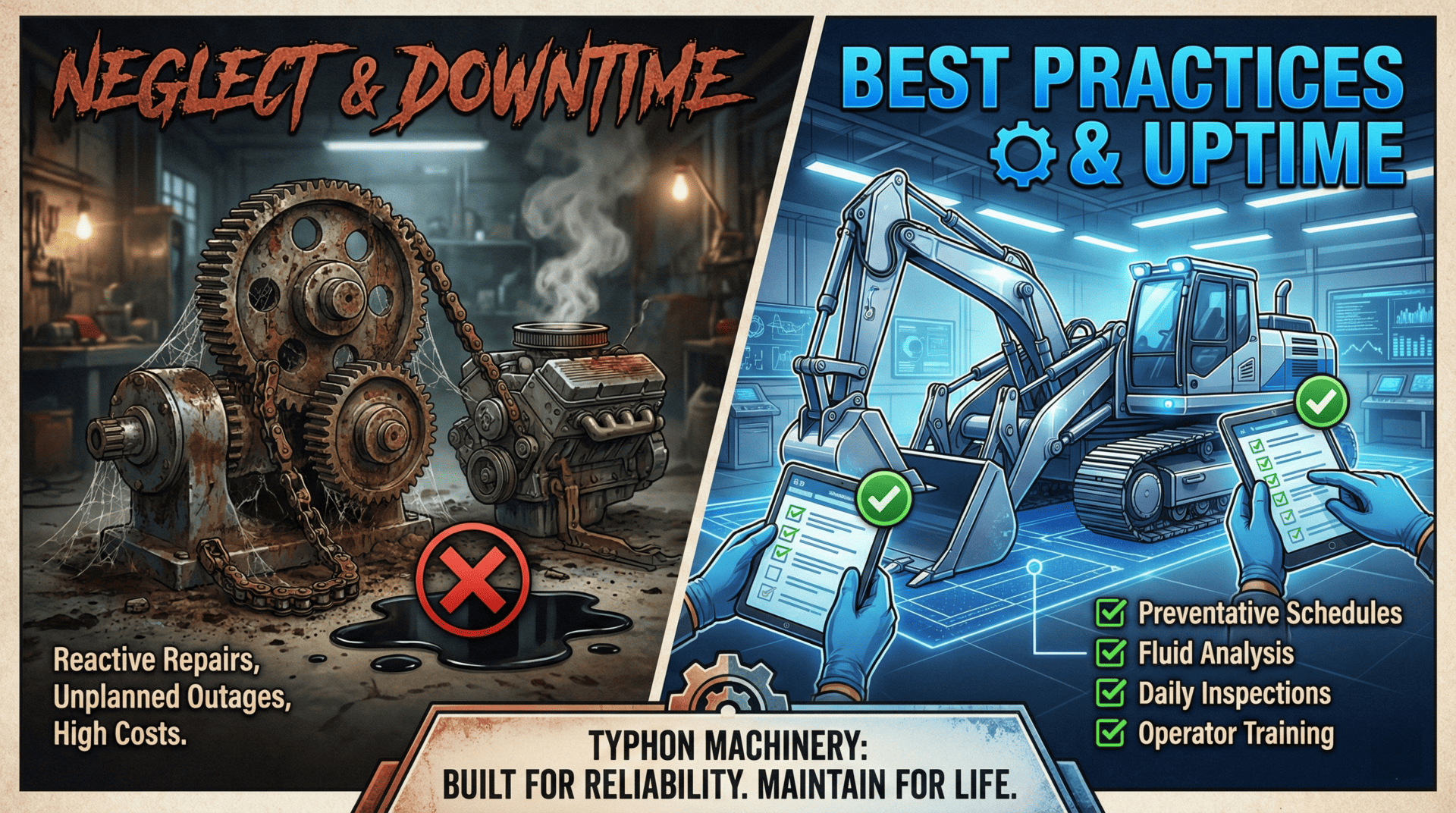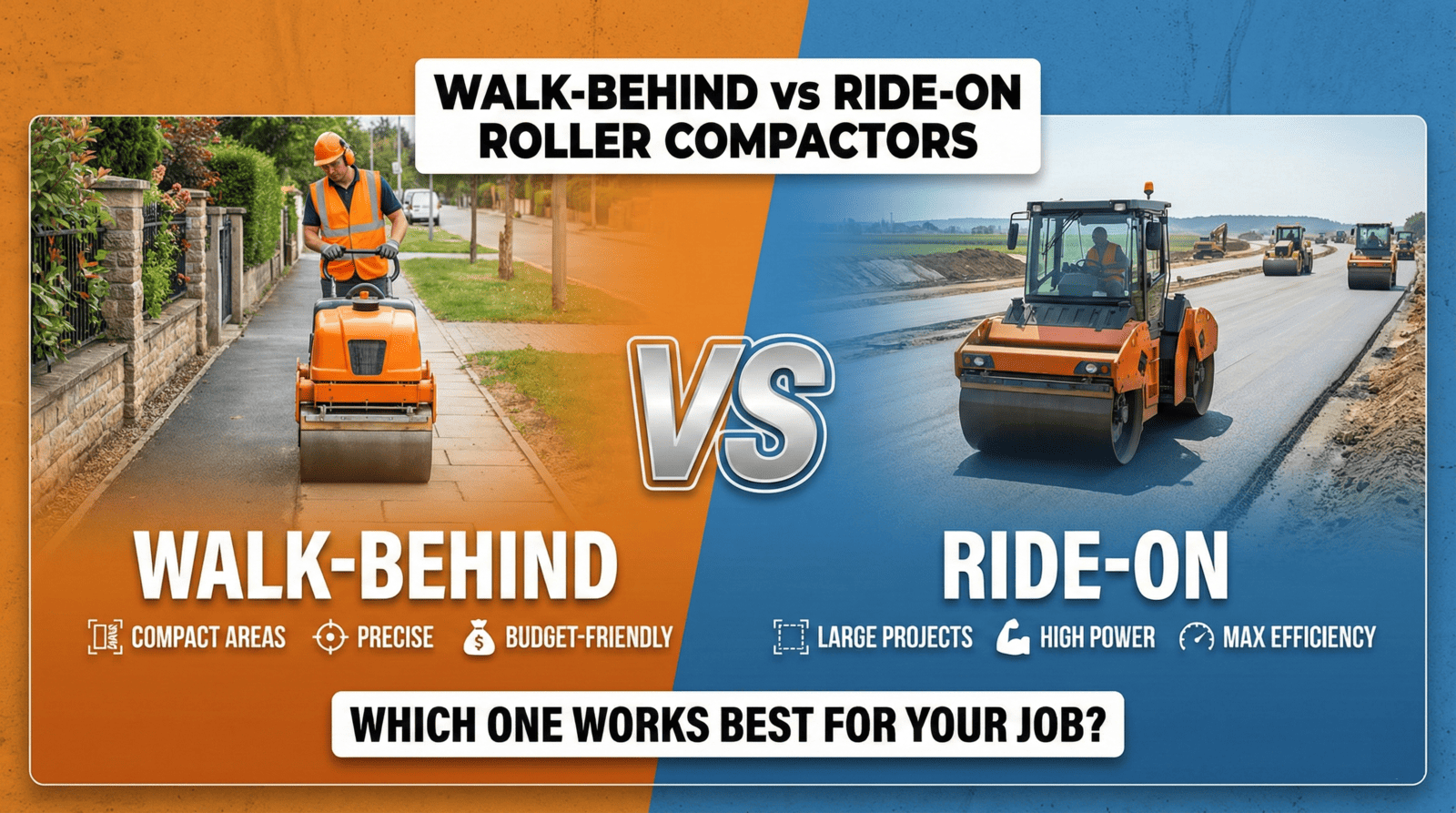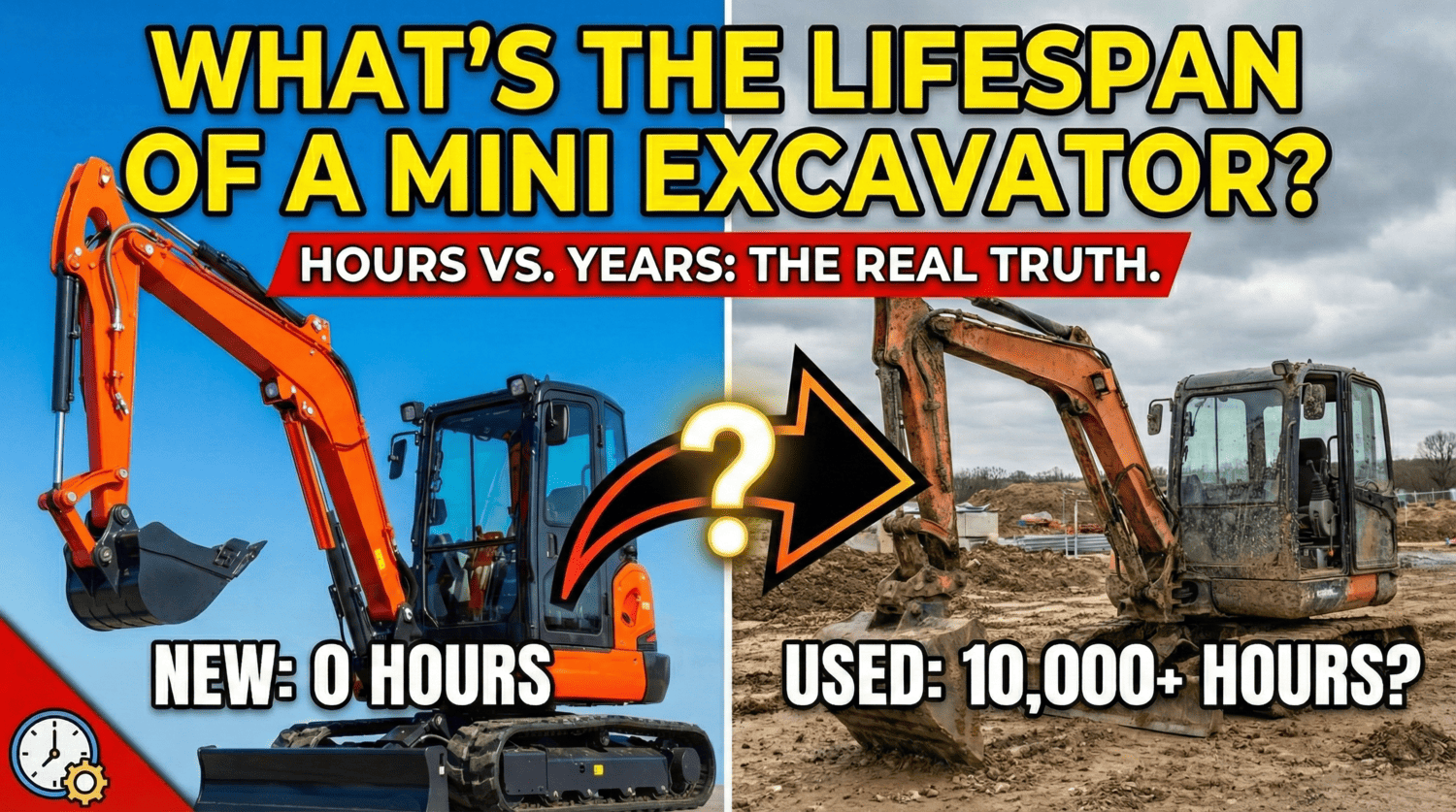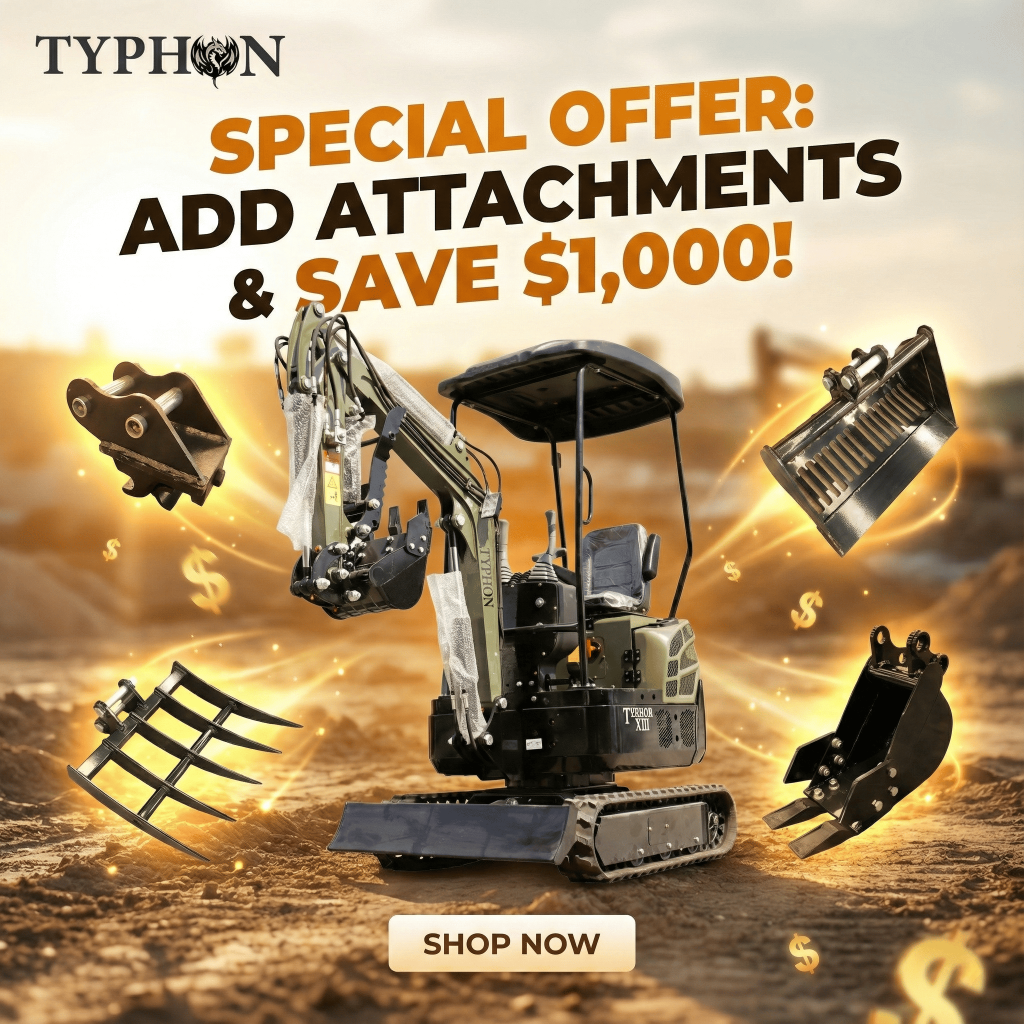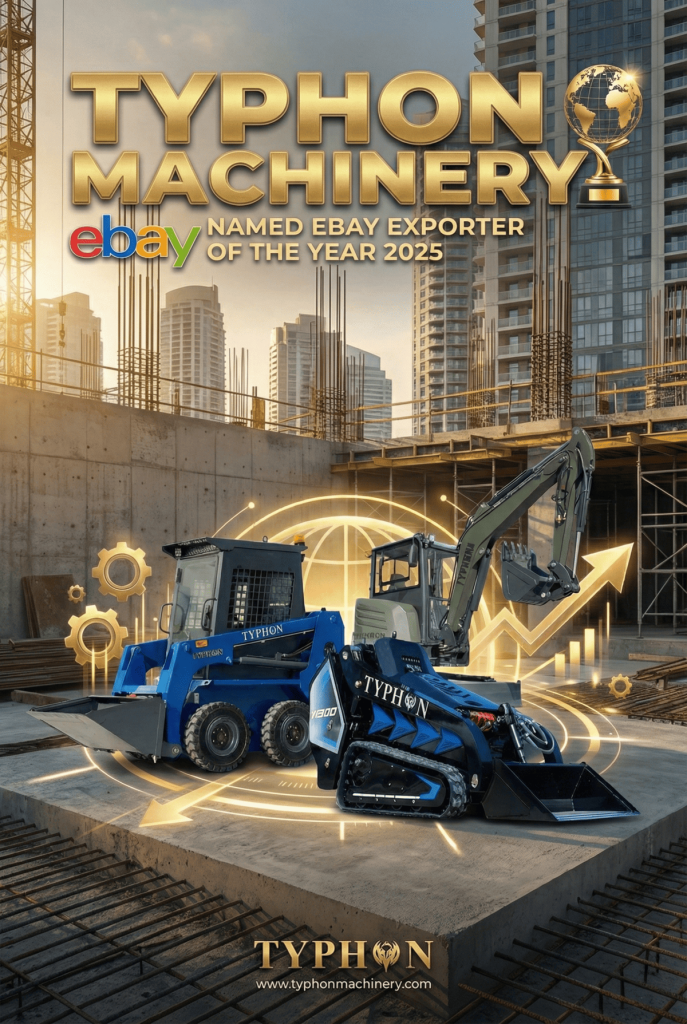While searching for trusted mini excavator dealers close to you, it is really important to consider the brand you believe in. Typhon Machinery is a well-known name in the compact construction equipment industry that is recognized for its long-lasting, efficient, and reasonably priced mini excavators.
Being a major source of robust machinery, Typhon Machinery is always committed to provide their customers with notable after-sales service as well as replacement parts, thus they are firmly seated among the top contractors, landscapers, farmers, and rental firms who are looking for reliable equipment to carry out a variety of operations.
Reasons to Buy Typhon Machinery Mini Excavators?
With a variety of options, Typhon Machinery ushers in mini excavators that are capable of handling both small and large-scale jobs with accuracy and strength. Their units are small in size but have a big effect, thus the are the most suitable for excavating, trenching, landscaping, demolition, and material-handling, especially in restricted areas of a job site where bigger tools cannot be used efficiently. By providing efficient engines and a wide range of attachments, Typhon mini excavators become highly productive as they can be used for diverse tasks.
Their vast stock ranges from the Terror series, thus a choice of 6 rugged mini excavators with weights varying from approximately 1 ton to 4,000 lbs is always available at your disposal, in order for you to find the one that fits your needs perfectly. Moreover, apart from the machinery, Typhon is also very enthusiastic about providing excellent customer service which includes the help of the technical department personalized to you, your inquiries being answered quickly and efficiently, the customer is given a one-year warranty and the spare parts are there to help shorten the time of the machine being idle.
Other Tips for Finding Reliable Mini Excavator Dealers
While Typhon Machinery offers excellent choices, thinking about additional factors will still allow you to get a mini excavator from reliable dealers:
- Locate dealers that give complete warranties, good service coverage, and the availability of replacement parts.
- Assess the dealer’s knowledge and support skills, which are very important for the product’s maintenance and solving problems.
- See if the dealer has financing or rental options that are comfortable and can help you manage your budget.
- Compare Typhon Machinery dealers with dealers of reputable brands like Kubota, Bobcat, Caterpillar, and Yanmar, as these brands also have extensive dealer networks and specialized offerings.
- Study the testimonials and get in touch with local heavy equipment or construction groups where you can ask for help and find trustworthy sellers.
Typhon mini excavator models and key specs
Typhon has a series of mini excavator models that performance perfectly in tight construction sites, landscaping, and trenching. Below is a thorough comparison of the different mini excavator models of Typhon along with their vital specifications that mainly concentrate on the Terror X2 and Terror XVIII, the two models that are most commonly mentioned for small business and contractor use.
Key Model Details
Typhon Terror X2
- Engine & Power: Diesel-powered Perkins 403J-11, 24.7 HP, compliant with EPA Tier 4 standards.
- Weight/Digging: A bit of a heavyweight variant at close to 6,500 lbs, with a longer arm of 10 feet (~3.05 m) for tougher excavation and foundation tasks.
- Features: Cabin with air conditioning and heater, boom swing, retractable tracks for easy handling, big 500mm bucket, high torque (66.4 Nm at 2100 rpm).
- Use case: A perfect choice for construction projects of a medium scale, foundation digging and bigger drainage systems because of increased stability and reach.
Typhon Terror XVIII
- Engine & Power: Kubota D902, water-cooled diesel, 20.4 HP at 3600 RPM.
- Weight/Digging: Less bulky (4,000 lbs), 2060 mm (almost 7 feet) digging depth for work in tight spaces and light trenching.
- Features: Canopy arrangement, large swing radius, 380 mm bucket, simple for non-experienced users, guide included.
- Use case: Landscaping, agriculture, small construction sites, utility work, or any place where access is limited are the situations in which it is great.
Typhon Terror XIII Pro Storm
- Honda engine (~22.1 HP), hydraulic thumb, canopy, really good for trenching and compact jobs.
Typhon Terror XVII Lux (Electric)
- All-electric, perfect for indoor tasks, clean-air zones, city operation.
Typhon Terror XI
- A lighter crawled excavator, ~13.5 HP, 1.1 ton, is the most appropriate for delicate works like narrow trenches and minor construction.
Key Advantages
- Versatility: Any unit of Typhon series may be fitted up with a varied combination of the tools for digging, drilling, trenching, bull-dozing, and more.
- Operator Comfort: Large cabins, canopy or fully enclosed variants, sophisticated controls, the ergonomic design aimed at lessening the operator’s fatigue.
- Efficiency: Increased hydraulic flow rates, strong horsepower for lower fuel consumption and quicker cycle times.
Choosing the Right Typhon Mini Excavator
- Terror X2: Select this if you need to deep dig, do heavier lifting, and require a strong power on big job sites.
- Terror XVIII: Decide for closers, landscaping, farming operations, or utility works areas.
- Terror XIII Pro Storm/XI/XVII Lux: Think of these for ultra-compact, very few light-use works, or mixed-emission areas.
Completely, every single model is backed by an extensive customer service package, a long warranty period and a good after-sales service network, thus giving Typhon a strong foothold as a brand of mini excavators that customers turn to most. It is better to always check details directly at Typhon Machinery official site to be sure of the newest models and features before buying.
FAQ section for mini excavator buyers
Here is a detailed FAQ section that addresses the concerns of mini excavator buyers regarding the important topics of equipment selection, maintenance, and best purchasing practices. This resource aims to solve most buyers’ questions and be a compass for newbies and the experienced buyers during the decision-making process.
Mini Excavator Buyer FAQ
1. What is a mini excavator and what are its common uses?
A mini excavator called a compact excavator is a small-scale heavy construction equipment with a biologically weighted range between 2 and 6 tons. Its major components are a frame or body, tracks, an engine, a boom arm, and a bucket or an auger as the attachment. The industries above and underground parts of the construction industry, green industry, metal industry, concrete industry, demolition industry, and the utility industry are completely filled with mini excavators. Being track-mounted, they can operate efficiently in tight areas where you cannot reach by hand.
2. How do I choose the right size mini excavator?
You should assess the physical limitations of your worksite such as gates and access trails before you choose the best size for your mini excavator. Take the narrowest doorways or paths and check to see if the excavator fits. Furthermore, think about digging depth, lifting, and weight requirements—the perfect size will depend on your main job and the working environment.
3. What types of attachments are available, and why do they matter?
In addition to the regular bucket, the mini-excavator can have a broad range of attachments and they can interchange them easily which could be a myriad of items like hydraulic hammers, augers, thumbs, or grapples. By the proper application of the attachments, your machine could do a wide range of tasks such as earthworks, leveling, drilling, loading, etc. Flexibility in attachments will give you the most out of your machine.
4. Should I buy new or used?
Usually, new machines have a warranty from the manufacturer, the latest tech, and are less likely to need maintenance. On the other hand, the used excavators are cheaper but may bring you some headaches. You should see the maintenance records if you plan buying used, check the machine for wear-and-tear, and if you cannot, check the hours of operation. Take the price of a used unit as 25-50% of the new one but also be prepared for a bigger number of hours till further maintenance.
5. How can I avoid scams or risky sellers?
One of the safest things to do would be buying the equipment from a trusted dealer or a well-known online platform. Do not advance a money transaction to a seller that you do not know, especially if the product is at a very low price and the seller asks for a strange payment method. Find out more about the sellers’ background and see what other buyers say about them.
6. What maintenance does a mini excavator require?
Regular maintenance is important for getting the most out of your equipment and making it last as long as possible. This includes daily or weekly inspections, cleaning after major projects, changing filters and fluids, greasing moving parts, and checking the tracks and hydraulic lines. Get a maintenance checklist and a demonstration of how to do routine care from your dealer.
7. Which features should I look for when comparing mini excavators?
Pilot hydraulic controls for smoother operation, quick access maintenance spots, rubber or steel tracks (with the possibility to add rubber pads), ergonomic cabs (with heating and cooling if needed), zero tail swing for tight places, and safety features like locked controls are all important.
8. How do I get operator training or certification?
For safety on the job site and to meet insurance requirements, operators often need to be certified. Find recognized training programs through your dealer, local vocational institutions, or certified online courses. Then, finish the required coursework and exams to get your certification.
9. What should I know about warranties and service plans?
Most new mini excavators come with a warranty from the company that made them. This warranty usually lasts for one to two years. Your dealer or a reputable third party may offer extended warranties and servicing contracts. These usually include parts like engines, hydraulics, and electronics. Always check the details of your coverage and retain proof of purchase for claims.
10. How do I test a mini excavator before buying?
Set up a test or demonstration with your dealer. Check how comfortable the machine is, how easy it is to see, how quickly it responds to controls, and how easy it is to changing attachments. If you can, test the excavator’s performance by doing chores that are comparable to the ones you usually do. This will make sure it has enough power and is easy to move around.
This FAQ will help you make sensible, safe, and informed choices when you buy a mini excavator, which will protect your investment’s long-term worth.
Safety and certification FAQs for new excavator operators
A frequently asked questions (FAQ) area for new excavator operators that covers safety best practices, following OSHA rules, and getting certified. The most recent guidance from regulators, trainers, and the industry is used to answer each query.
Safety and Certification FAQs for New Excavator Operators
Do I need a license or certification to operate an excavator?
In a safe way, according to the law, a certification has to be present in the US jobsite—it has to be ensured that the operators receive training that conforms to the OSHA standards. Even if a formal license is not obligatorily required everywhere, safety training and a certificate of completion are prerequisites that are usually asked for by construction sites, rental fleets, and employers before granting the permission to operate the machine.
Where can I get certified, and what does training include?
One can access certification courses via the internet (for example, through the OSHA Education Center) or face-to-face at an accredited heavy equipment college or a vocational school. The programs combine theoretical study of safety regulations at the federal level with practical training in the machine. The training includes the introduction to the machine operation, recognizing potential dangers, following emergency procedures, as well as performing routine maintenance tasks.
What are the core safety rules I must follow as an excavator operator?
Among the most important regulations are thorough pre-operation checks, care for the stability of the machine, not undermining under the tracks and, certainly, not overloading the bucket. The swing radius and the area where the bucket works should always be free of the other crew members. Besides, the three-point contact rule should be applied when getting on or off the cab, together with the use of the proper PPE (hard hats, eye protection, gloves, boots).
What OSHA rules should I be aware of for excavation?
According to OSHA 1926.602 (a), employers must ensure that operators are not only trained but also competent in using earthmoving equipment. Besides that, there must be ladders or ramps on job sites for safe entry in trenches deeper than 4 feet, and a “competent person” must inspect them daily for signs of collapse, hazardous atmospheres, or equipment problems.
How do I recognize and avoid common hazards?
The risks comprise ground that is not firm (undercutting), losing balance (overload or side slope operation), buried utilities, and malfunction of the equipment. One of the important things to remember is to always call the local One-Call center before you start digging, visually inspect the area before operation, and never work on a slope if the fuel in your tank is running low.
Is ongoing education required after initial certification?
The answer is yes, continuing education should not be neglected. The operator must always be up to date with the new model of the machine, the regulations being changed, as well as the safety protocols that vary depending on the site. Most employers will require you to be retested from time to time or to take extra training when there is a change in the machinery or the working conditions.
What should I do in an emergency while operating?
Know and follow the site regulations related to shutdown and evacuation. Keep the cab glass clean at all times to ensure good visibility and, at the same time, always be aware of your surroundings. If, for example, the situation is that the machine is unstable and hence you have lost control of it, then, according to your training, you should shut the machine down and, without delay, inform the site managers of the incident.
What physical and mental skills are essential for safe operation?
Besides good physical condition, they must have an excellent spatial perception, be able to communicate clearly and have quick reflexes to be able to conduct the heavy equipment in a safe and also in an effective way. Yes, being in good physical shape to be able to sit for long periods and having your mind focused so that you can spot the dangers is very important for every single shift to follow.
These FAQs serve as a guide for beginners to follow the safety rules, lessen the chances of accidents at the workplace, and set up a strong base for a safe career in the field of heavy equipment operation.
